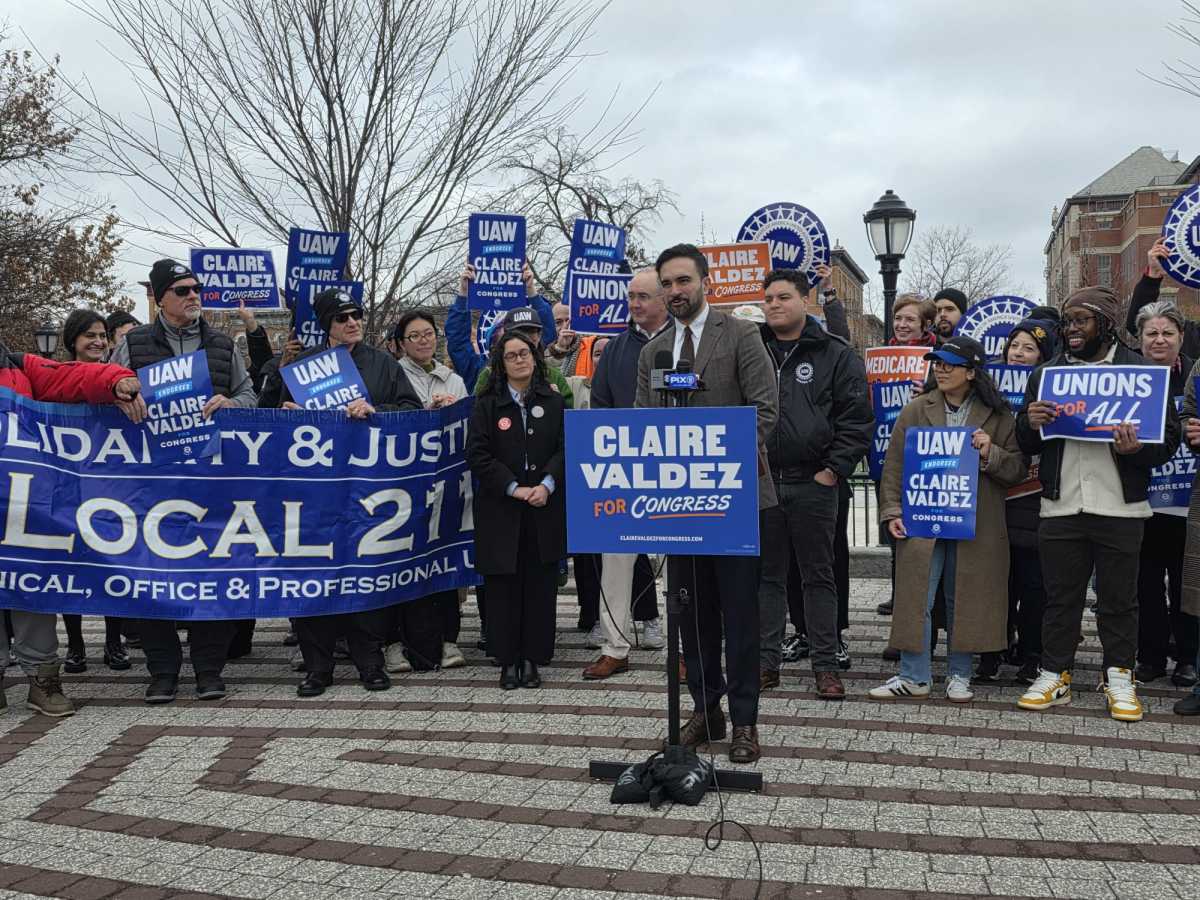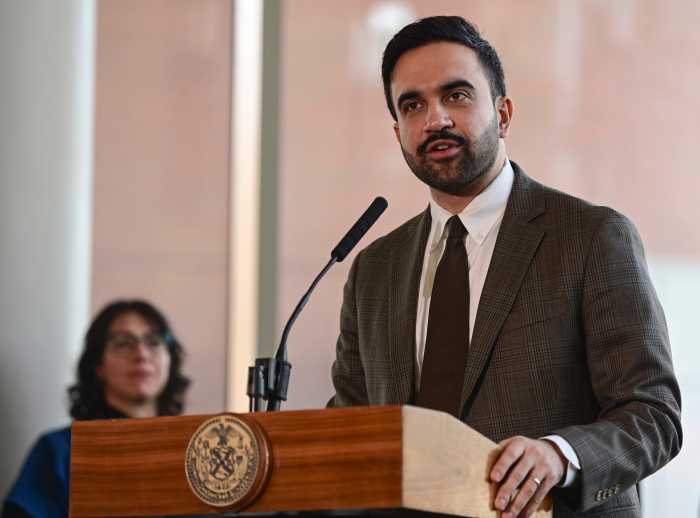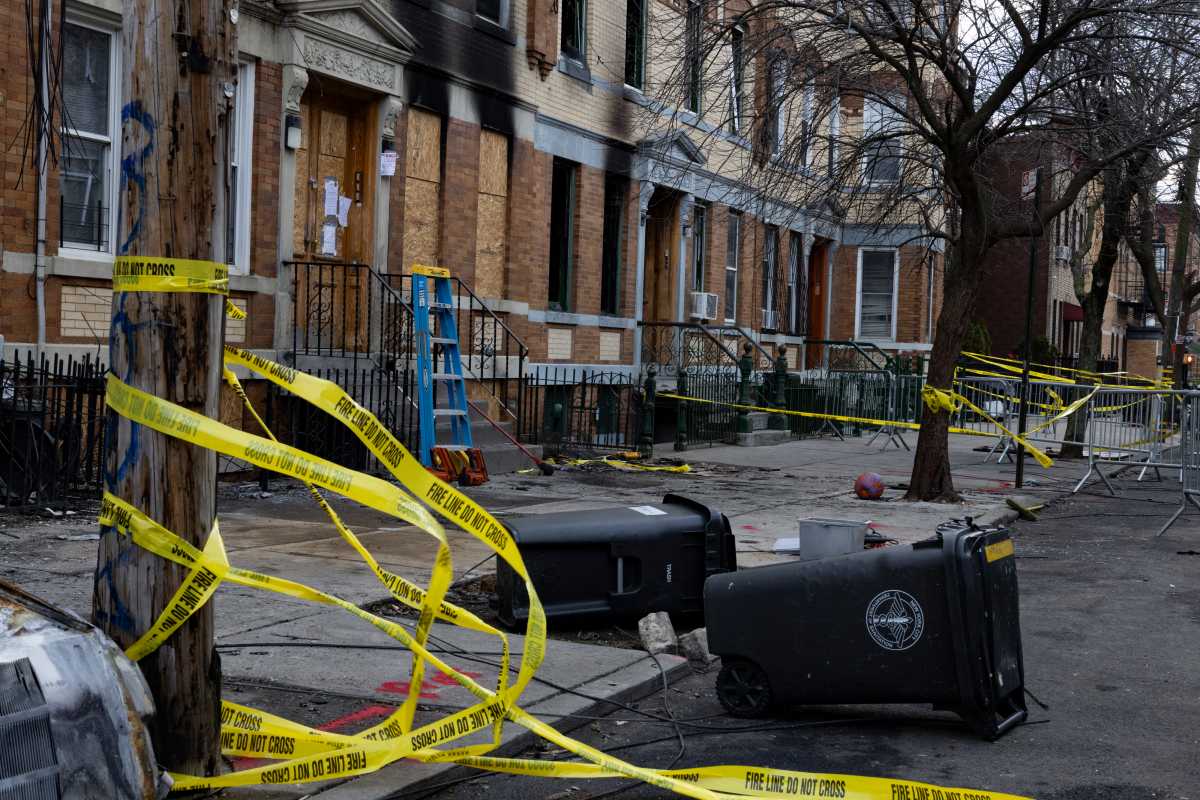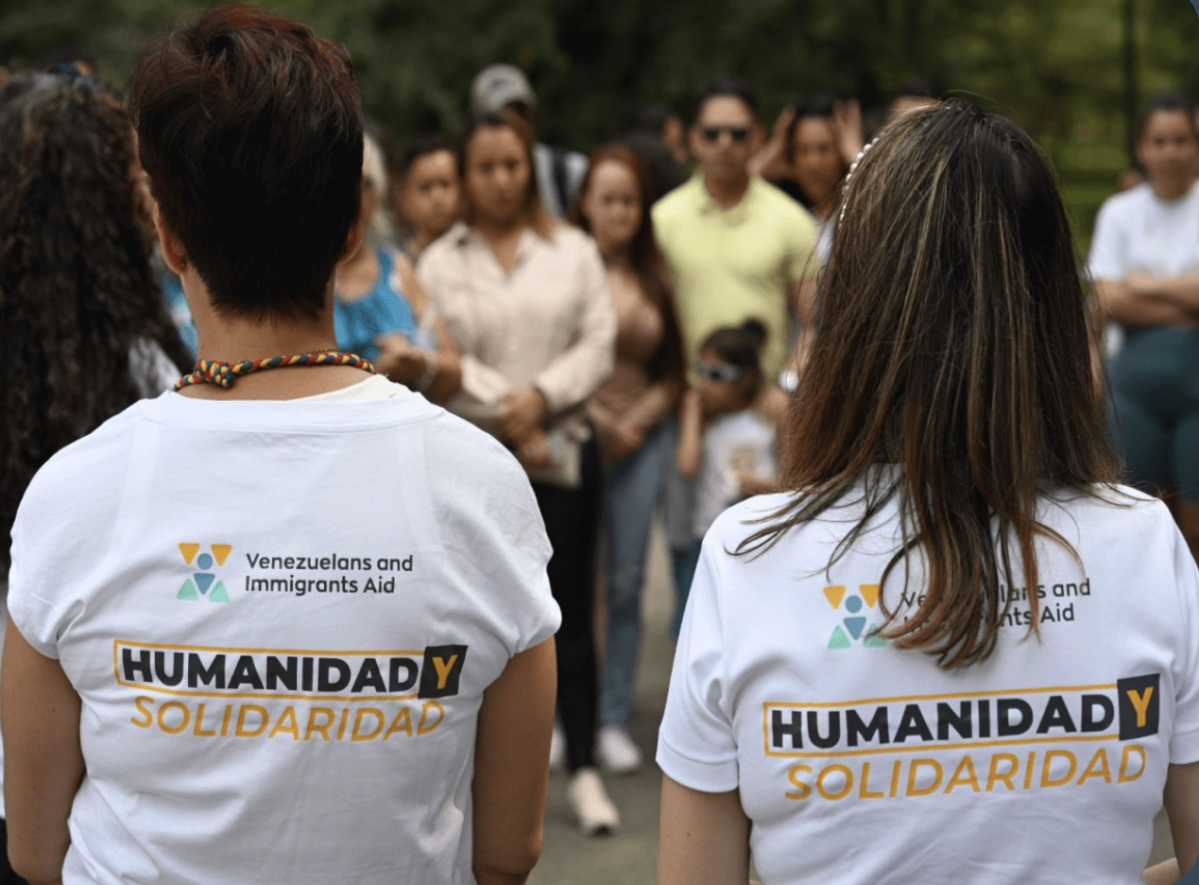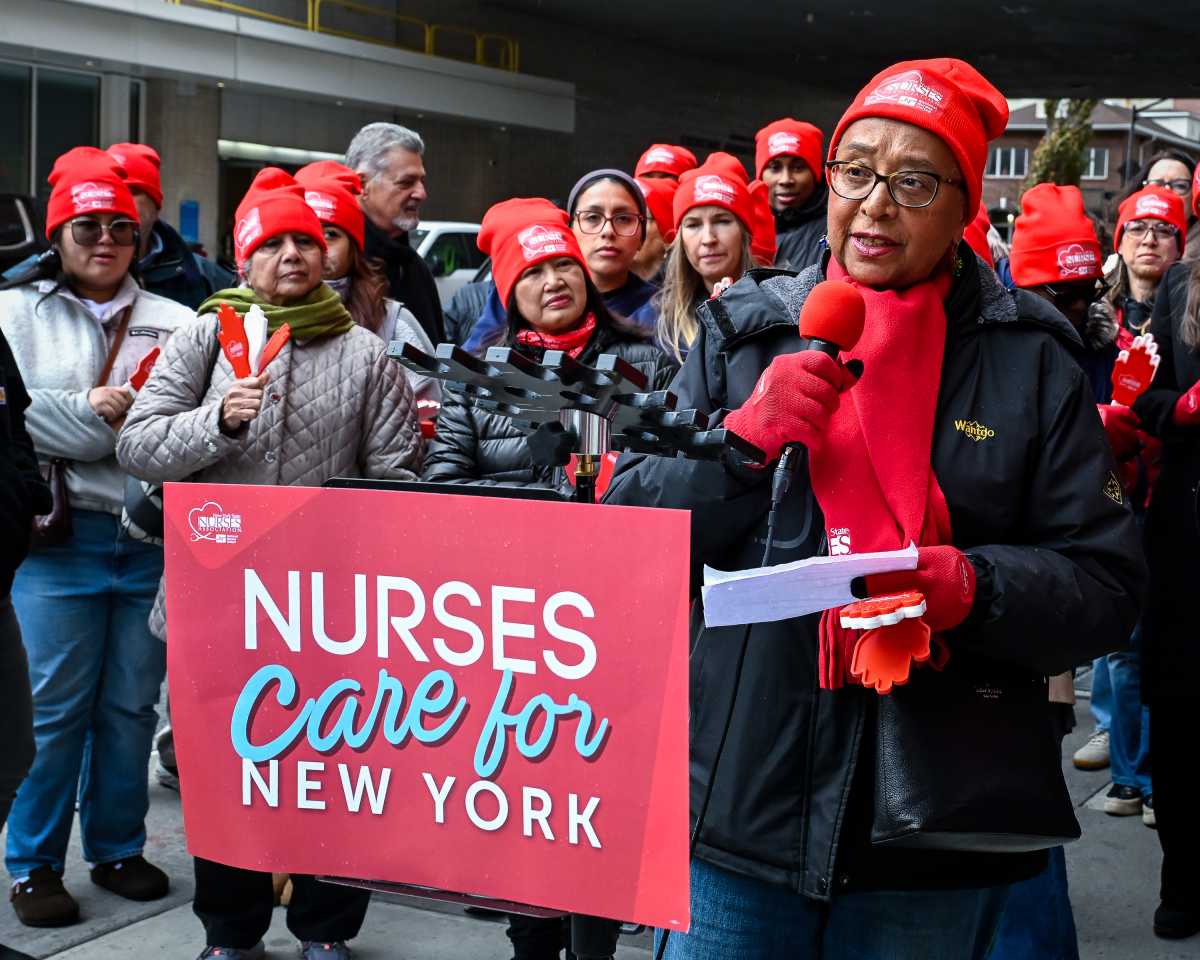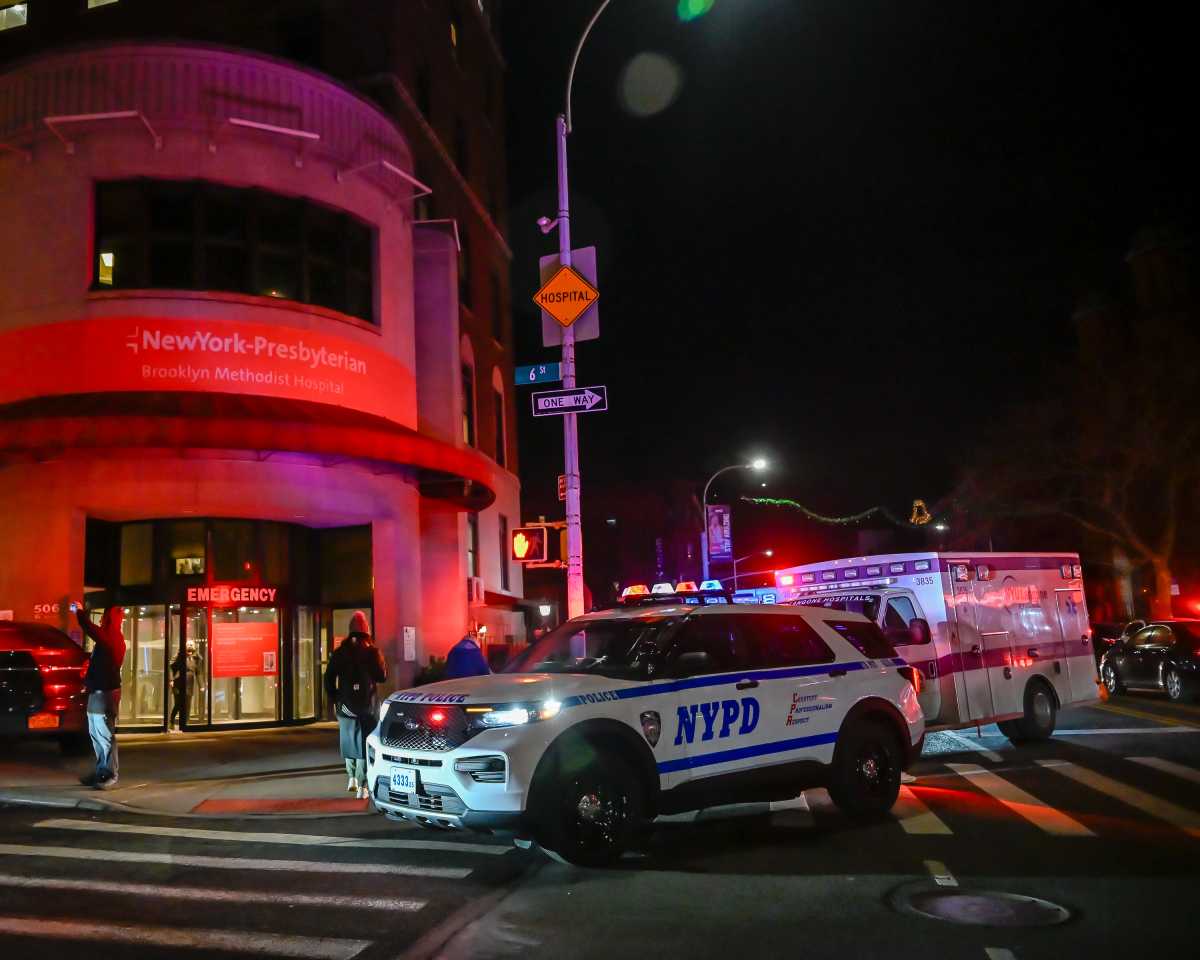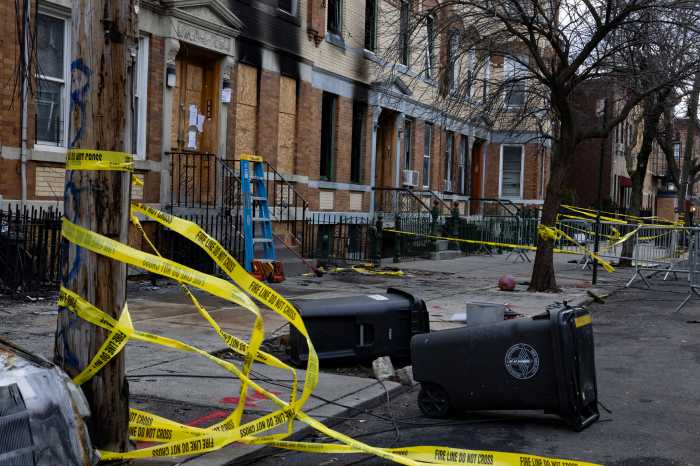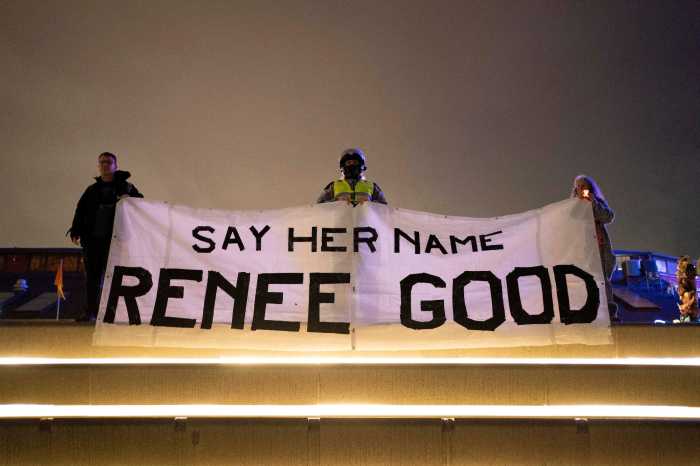On the heels of making deep spending cuts across city agencies last week, purportedly because of the migrant crisis, Mayor Eric Adams’ budget office on Monday called for a 20% trim to “asylum seeker expenses” over this fiscal year and the next.
Budget Director Jacques Jiha made the request of the Office of Asylum Seeker Operations in a Nov. 20 letter to city agency heads laying out his office’s demands for the next round of 5% budget cuts that will come in January. The savings initiative would be the second of three rounds of 5% cuts Jiha first ordered from all city agencies in a September missive.
Jiha’s letter follows the release of the mayor’s November financial plan last week, which cut a total $3.7 billion over this fiscal year and the next across city agencies. The wide-ranging cuts will cause the cancellation of the next five NYPD academy classes, a reduction in the number of trash bins in the outer-boroughs, the elimination of an unspecified number of free preschool seats and the cancellation of Sunday service at most public library branches.
But even though last week’s belt-tightening measure balanced the current fiscal year’s budget, Jiha said, the city still has a projected $7.1 billion deficit in Fiscal Year 2025 that must be closed. The gap is in part fueled by an additional $6.2 billion the city put toward migrant services — such as housing, food and legal assistance — over this fiscal year and the next in the November Plan.
Jiha said a cut to the level of services for recent arrivals is necessary given that there are 66,000 migrants currently in the city’s care and the rate of new arrivals continues to exceed the administration’s projections and significant aid from Washington and Albany does not appear to be on the way.
“The city cannot sustain asylum seeker care expenses at current levels and, at the same time, maintain city services and keep the city safe and clean,” Jiha wrote in the letter.
Mayoral spokesperson Charles Lutvak, in a statement, said the cuts are also a result of slowing tax revenue growth and the ending of federal COVID-19 era stimulus funding.
“We must close an unprecedented budget gap in just two months, and without the significant and timely support we need from Albany and Washington, we will be forced to find even more savings,” Lutvak said.
Unclear what services cuts will look like
The migrant cuts are targeting reductions in the per diem cost of providing for asylum seekers and lessening the lengths of their stays in city shelters, Jiha said. The budget director did not specify what those service reductions would entail, though last week budget officials said they would conduct a “thorough review” of what’s offered to migrants to see where cuts could be made.
The mayor has already placed limits on shelter stays of 30 days for single adult migrants and 60 days for migrant families. The latter excludes families living in facilities run by the city’s Department of Homeless Services (DHS), where the majority of newly arrived families are housed.
But cutting back on migrant services now will only lead to more problems down the road, Coalition for the Homeless Executive Director David Giffen told amNewYork Metro.
“The long-term costs of not dealing with the problem are far higher than any short term savings,” Giffen said. “The city needs to be investing, especially in doing more casework with each of the households as they come into the system … cutting back on those resources right now is only going to result in more people ending up on the streets.”
When it comes to other city services and programs, Jiha said all agencies must submit plans to his office to shrink their budgets by another 5% by Dec. 8. Those plans cannot include layoffs and must steer clear of “meaningfully impacting” services “where possible.”
A hiring freeze, pause on new initiatives and expenses like non-essential travel will also remain in effect, the budget director said.
However, the NYPD, Fire Department and Sanitation Department will all be exempted from the January cuts, Jiha said, “out of concern that additional budget cuts at this time could impact public safety, health and cleanliness.”
Read more: Jets Week 13 Draft: Could Marvin Harrison Jr. Be Future Target?



